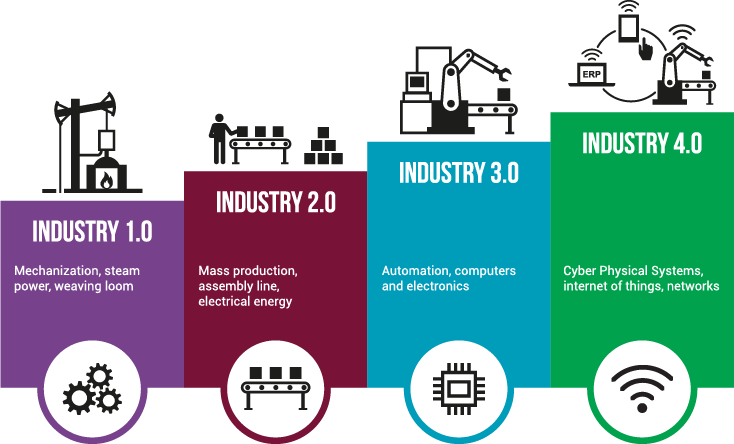
31
2019AmCham column – Our stories: How to digitally transform Montenegro
Author: Vladimir Tabaš, Čikom’s Director General, member of AmCham Digital Transformation Committee
Digital technologies have a significant impact on the economic process, but also on the complete development of the society, and thus, of ourselves. Robotics, Cybernetics and Informatics, so-called primary technologies, transform not only the economy of the world, but also sociological and cultural frameworks. Future generations are probably going to study this period as “the fourth industrial revolution” or as scientists say “the 4.0 industry “.
Digital transformation is an evolutionary process of changing the way of life and business in the context of digital technologies, primarily by using software and new technology solutions based on internet services and modern informatic technologies. It is an unstoppable trend in the world, and therefore in our region too. Transformation is equally applicable in highly economically developed countries, as well as in those with lower level of development. Although digital transformation cannot overcome the economic and social gap, it can accelerate their reduction, and this is a great opportunity for Montenegro as well. It is believed that countries which do not jump in the last train of digital transformation, and do not accept the laws of the fourth industrial (r)evolution, will be left behind with lost chance for joining the developed world.
When is up to internet use and mobile services, Montenegro is not lagging behind other countries, but still does not use digital technologies in other segments, especially in the economy and education. The fact is that citizens, especially teens, use IT technologies mainly to communicate via social networks and consume internet content, which is a good impulse for development, but it cannot be considered as proof of digital literacy. Therefore, in order to use the whole benefits of digitalization, we need to work on informatic literacy, which includes knowledge and skills for using personal equipment (PC, notebook, tablet) and basic applications (programs, software).
Digital literacy also implies using IT technologies for communication with state and local institutions, banks, and fulfil rights and obligations. Only at this level of development we can talk about digitally transformed individuals and the whole society. At this moment, we are still far from this level of digital literacy, but the goal is not elusive.
The development of the informatic society, as the final result of digitalization, depends on various elements: availability of telecommunication infrastructure, legal framework, availability and development of state administration services, banks and other financial institutions, changing of education system and citizens’ education, and development of the IT sector in Montenegro, in general.
Telecommunication infrastructure in our country is at sufficient level, as IT community indicated. When it comes to the internet access and availability of services, all providers of these services are very good, but significant number of citizens and companies consider that the price of services and packages is too high in comparison to the region, which reduces their availability and limits the development of the informatic society.
Legal framework for digitalization was created: legislation has been adopted in the form of assize and bylaws, but it requires different solutions. For example: Law on Electronic Administration explicitly defines that registers with personal data of citizens cannot be kept outside the borders of Montenegro, which is a powerful limiting factor for cloud services that are offered in the cyber space. The law neglects the fact that cyber space has no boundaries and such provision currently has a negative impact on public perception of security systems. Also, this directly slows down the rise of awareness for the need of building local cloud services, which are the cheapest access to informatic resources for those who do not have it enough.

A particularly important segment of digital transformation, and at the same time its final destination, is digital economy, because digitalization increases company’s efficiency, productivity and profit. By establishing the Digital Transformation Committee, American Chamber of Commerce has recognized the importance of digitalization.
Development of e-administration is an important segment and indicator for the digital society development. The ultimate purpose of digital services, which state administration, local institution and economy provide to the citizens, is to enable all customers to use personalized cyber space under the control and protection of companies or state administrations. By accessing these specially personalized resources, users are able to manage personal data, communicate with companies and government agencies, and use all software resources provided by these entities through cloud services, in order to regulate their rights and obligations more easily.
Portal E-government, which is currently available to the citizens, offers a large number of services, but its services are not used often. The reason lies in the fact that people do not use services due to the fear, which has root in lack of IT education.
Last reform of the education system doesn’t not stimulate the creative use of informatic technology. Also, the need of educated staff is huge. Children nowadays mostly learn basic software tools, which is outdated procedure. The lack of mentors, university and business cooperation, are some of the problems that creating digital society makes more difficult, and its creators and carriers should be students and researchers.
Therefore, human resources are an important element for the digital transformation. The educational system should build a new generation, because demand of IT personnel grows exponentially throughout the world, even in Montenegro.
By identifying and finding ways to solve these problems and challenges, we can embark on the process of digital (r) evolution of Montenegro.








